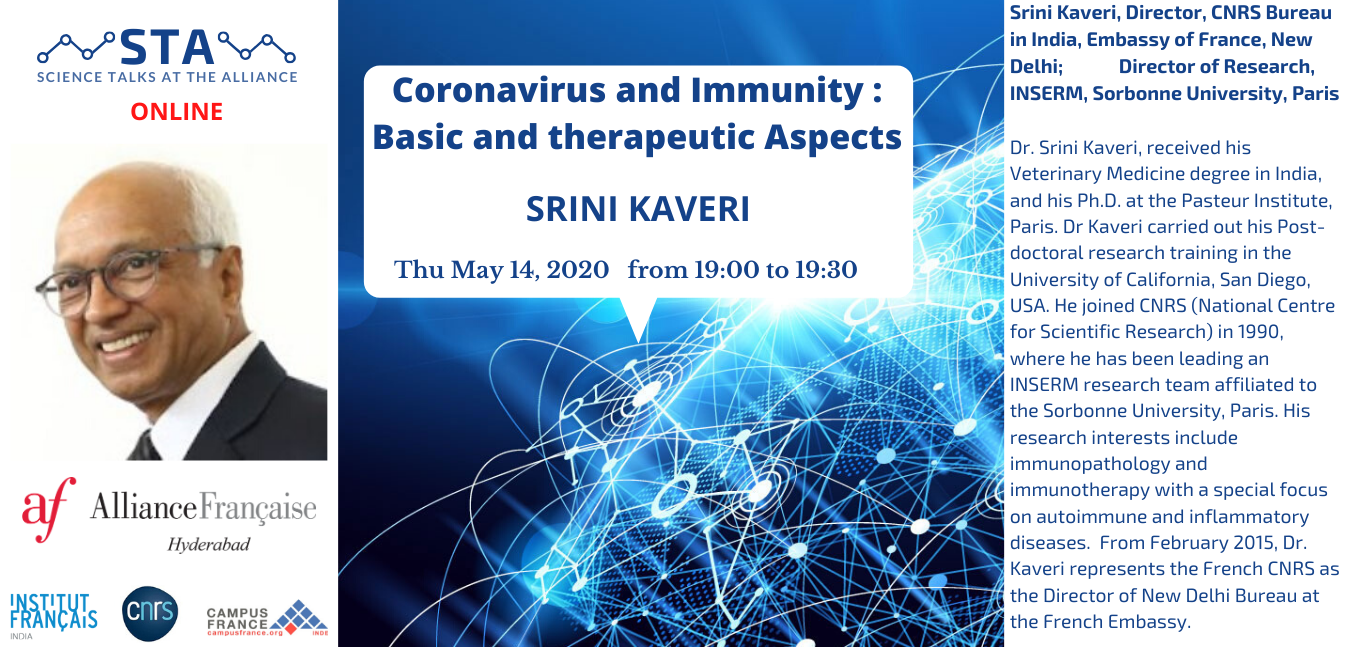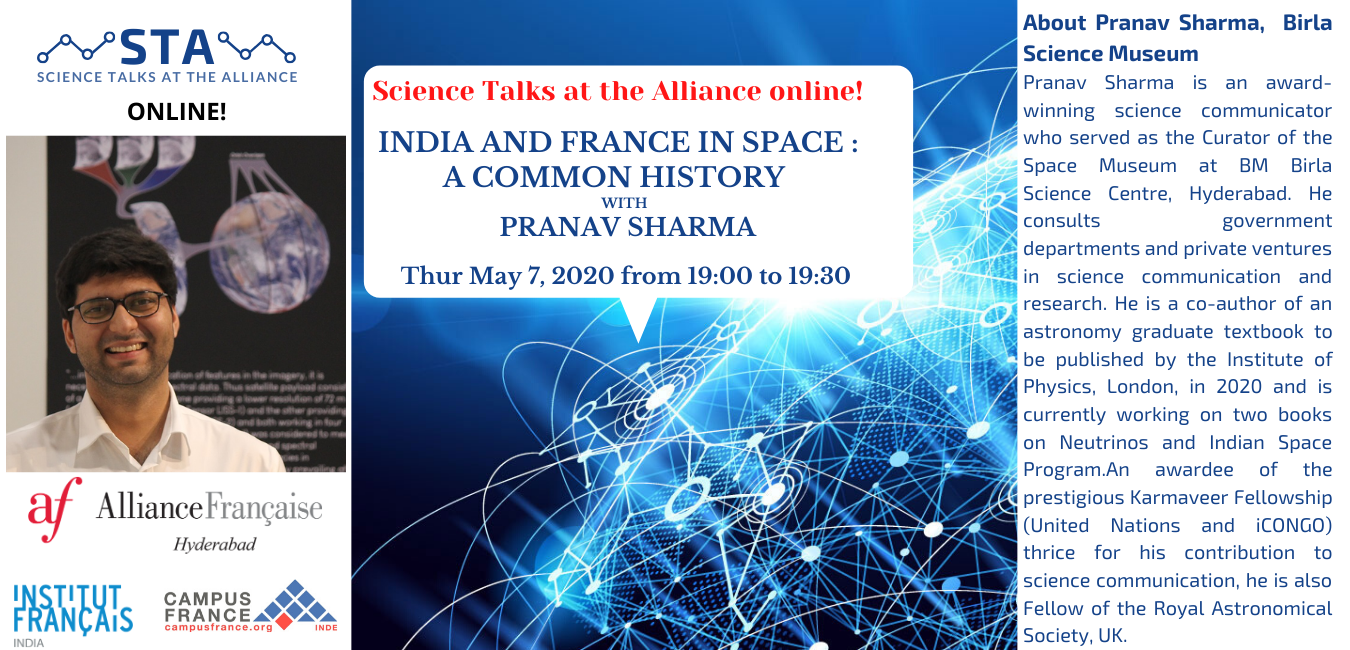Hyderabad and France have a long standing history of cooperation in the fields of science and technology hailing from the 18th century till date.
In collaboration with the Institut Français India (IFI), the Science Talks at the Alliance (STA) gather Indian and French scholars, experts and practitioners to share the excellence of both countries but also critical thoughts about science and development.
The STA targets scholars, experts, students, educational institutions representatives and decision makers.
STA ONLINE !
https://www.facebook.com/AFHyderabad/
STA #6 Online : Coronavirus and Immunity: Basic and therapeutic Aspects – Srini Kaveri
The coronavirus outbreak was first reported on December 2019. Soon, the disease spread to the rest of the world, and the WHO has now declared it a pandemic. The virus is named as SARS-CoV-2 and the disease is called COVID-19. The virus has so far killed about 275,000 people.
Most of the damage in COVID-19 is actually caused by the immune system carrying out a ‘scorched earth defense’ to stop the virus. A better understanding of the immune response in Coronavirus infection is therefore crucial. In the presentation, we will have an overivew of the immune response in Covid-19, and look at the therapeutic and vaccine options.
About Srini Kaveri
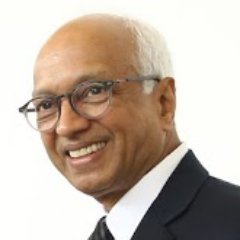 Director, CNRS Bureau in India, Embassy of France, New Delhi
Director, CNRS Bureau in India, Embassy of France, New Delhi
Director of Research, INSERM, Sorbonne University, Paris
Dr Srini Kaveri, received his Veterinary Medicine degree in India, and his Ph.D. at the Pasteur Institute, Paris. Dr Kaveri carried out his Post-doctoral research training in the University of California, San Diego, USA. He joined CNRS (National Centre for Scientific Research) in 1990, where he has been leading an INSERM research team affiliated to the Sorbonne University, Paris. His research interests include immunopathology and immunotherapy with a special focus on autoimmune and inflammatory diseases. From February 2015, Dr Kaveri represents the French CNRS as the Director of New Delhi Bureau at the French Embassy.
In discussion with him will be Ambika Anilkumar.
Being a trained chemist, Ambika obtained her PhD in cell biology from National centre for Biological Sciences (NCBS), Bangalore which is currently functioning as a National Covid research centre. Soon after obtaining her PhD degree in 2016, she joined St. John’s research institute in Bangalore to pursue her post doctoral research in diabetes where she helped in organising a team of scientists from University of Cambridge, NCBS and St. John’s medical college to work together in her project to understand type 2 diabetes. In 2018 she joined the Embassy of France in India as the scientific coordinator for the South zone aiding industry and academic cooperation.
Hailing from a clinical cell biology background Ambika is the scientific coordinator at the Embassy of France In India in charge of university and academic cooperations since 2018.
…..
STA #5 Online : India and France in Space: A Common History, Pranav Sharma ( May 8th, 2020 )
Online Science Talk at Alliance!
https://www.facebook.com/AFHyderabad/
Abstract: Nehru, the first prime minister of India saw science as a liberating force. He inspired scientists and thinkers to work towards making India a scientific nation. He brought forward a Science Policy Resolution in 1958 which started the ball rolling. Vikram Sarabhai was convinced that “Space technology is most essential for the all-round economic development of India.”
Sarabhai, a Cambridge educated cosmic ray physicist met Jacques Blamont, CNES-Centre National d’études Spatiales’s founding scientific and technical director in Washington during COSPAR (Committee on Space Research)’s 1962 Assembly. Sarabhai established INCOSPAR (Indian National Commission for Space Research) in 1962 and Thumba (near Thiruvananthapuram, Kerala) was identified as the launching site. India adopted the French model and started learning the ‘trade’ by launching sounding rockets.
At the Thumba Equatorial Rocket Launching Station (TERLS) Indian Space Program was launched with the taking off of an American sounding rocket called ‘Nike Apache’ on 21 November 1963. Jacques Blamont personally brought the rocket-based payload from France, called the Sodium Ejector Payload which was manufactured in the CNES laboratory. This was the moment of birth, the birth of the Indian Space Program. Three more rocket-based experiments followed this. They were conducted by the French Centaurus which was a two-stage solid propellant rocket provided to ISRO by CNES.
Since then India and France have been very close collaborators. India has been benefitting from the French technology for decades, liquid propulsion being the most important contribution.
In this talk, I discuss Indo-French space history and how France has been instrumental in strengthening the Indian Space Program. I will also talk about Jacques Blamont’s contributions and his memoirs from the early days of ISRO.
About Pranav Sharma:
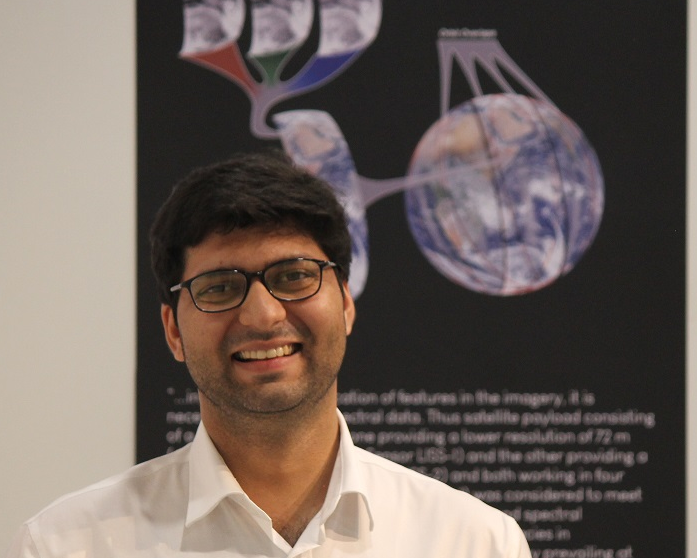 Pranav Sharma is an award-winning science communicator who served as the Curator of the Space Museum at BM Birla Science Centre, Hyderabad. He consults government departments and private ventures in science communication and research. He is a co-author of an astronomy graduate textbook to be published by the Institute of Physics, London, in 2020 and is currently working on two books on Neutrinos and Indian Space Program.
Pranav Sharma is an award-winning science communicator who served as the Curator of the Space Museum at BM Birla Science Centre, Hyderabad. He consults government departments and private ventures in science communication and research. He is a co-author of an astronomy graduate textbook to be published by the Institute of Physics, London, in 2020 and is currently working on two books on Neutrinos and Indian Space Program.
An awardee of the prestigious Karmaveer Fellowship (United Nations and iCONGO) thrice for his contribution to science communication, he is also Fellow of the Royal Astronomical Society, UK.
Mr. Ram Babu will be in discussion with him as a panel member.
He’s an Economics & Social analyst with 2 decades of standing in the print and TV media.
……………………………………………….
Previous STA
STA #1: Groundwater resources in Telangana, Adrien Selles (January 10th 2020)
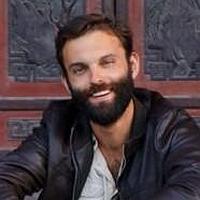 India is often cited as example of one of the country that will lack water in the coming future. But with a country with a size of a continent, it would be too simple to stop at this statement without looking closer. Water resource is at the center of the crucial nexus between food and energy. From farmers suicides to domestic use the water is a central element. How is the situation in India? What is and will be the water availability for the big cities like Hyderabad in 5, 10, 20 years? Through 20 years of collaboration between France and India about groundwater resource, this presentation will propose a brief summary of the water situation in India and especially in Telangana.
India is often cited as example of one of the country that will lack water in the coming future. But with a country with a size of a continent, it would be too simple to stop at this statement without looking closer. Water resource is at the center of the crucial nexus between food and energy. From farmers suicides to domestic use the water is a central element. How is the situation in India? What is and will be the water availability for the big cities like Hyderabad in 5, 10, 20 years? Through 20 years of collaboration between France and India about groundwater resource, this presentation will propose a brief summary of the water situation in India and especially in Telangana.
About Adrien Selles:
French hydro-geologist working for the French Geological Survey. Since 2015, he has been the Team Leader of the Indo-French Center for Groundwater Research in collaboration with Geophysical Institute of Hyderabad. He is studying and working especially on Groundwater resource characterization in complex systems (volcanic and granitic rocks).
STA #2: Pr. Luc Gwiazdzinski (Université Joseph-Fourier)
About Luc Gwiazdzinski:
Luc Gwiazdzinski was born in Lorraine, in the northeast of France. PhD in geography, professor and researcher in the Grenoble Alpes University where he manages the “Master Innovation et territoire. Créativité et design des politiques publiques” (Master in Innovation and territory. Creativity and design of Public Policies), he is member of the lab Pacte (UMR 5194 CNRS which is associated to MOTU [Milan] and EIREST [Paris, Sorbonne]). For the past twenty years, he has been developing geoartistic exploration protocols and working on the questions of chrono-urbanism. European specialist on cities (questions of mobility, social temporalities and urban nightlife) and responsible for conferences and research programs, he has also published extensively on these themes.
About Fatima Alikhan:
Fatima Alikhan is a Reader in Geography at the Centre for Area Studies, Osmania University, Hyderabad, where she is engaged in research on urban and regional planning in the countries of the Indian Ocean region. She has numerous research articles to her credit, particularly on the processes a
nd problems of urbanization in East Africa. Among her forthcoming books is Processes of Urbanization-An African Experience.
About Anne Chappuis:
Anne Chappuis, geographer, consultant, specialist in ” Geo-Graphical Management Information Systems (GMIS)” involved in research and development project Andhra Pradesh since 1979 ; founding member of “VIStA (Visual Information Systems for Action), NGO based in Hyderabad.
About Abeer Gupta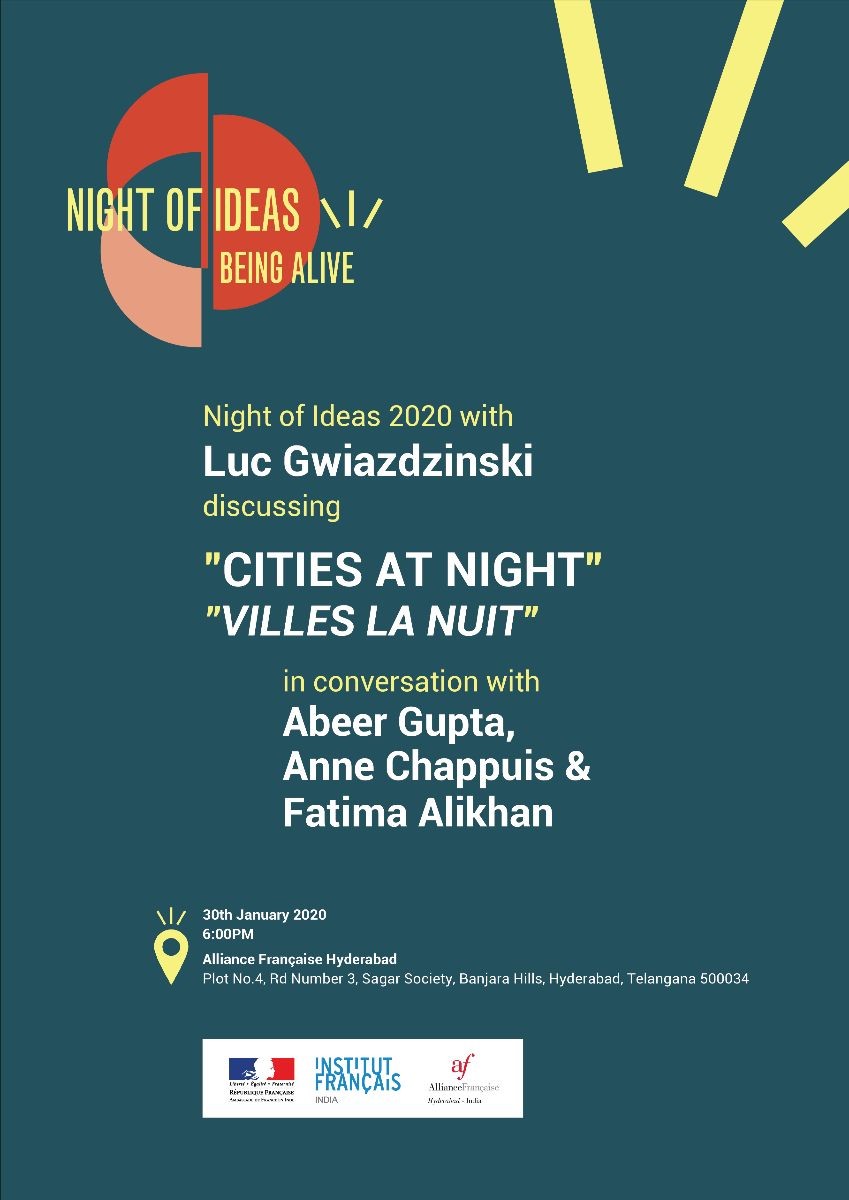 Abeer Gupta is director Krishnakriti Foundation. An alumnus of the National Institute of Design, and Goldsmiths College, University of London, he taught at Ambedkar University Delhi between 2014-18. He has directed several documentary films and curated art, education and community media projects. He has
Abeer Gupta is director Krishnakriti Foundation. An alumnus of the National Institute of Design, and Goldsmiths College, University of London, he taught at Ambedkar University Delhi between 2014-18. He has directed several documentary films and curated art, education and community media projects. He has
participated in several group shows. He is also director of Achi Association India, an organization that works for the preserva
tion of cultural heritage in Ladakh. His research is based in the western Himalayas, in Ladakh, Jammu & Kashmir, around oral histories, material cultures, and visual archives focusing on ideas of cultural construction, hybridity and commodification.
STA #3 | Christine Debouzy, President of the French Association of Women Pilots
About Christine Debouzy:
Christine Debouzy has been a captain at Air France for 34 years. She is the president of the French Association of Women Pilots. She is currently the captain on the Airbus A380, whose principal destinations include the United States, Mexico, South Africa or China. She studied at ENAC school in Toulouse as an airline pilot student. Then, she worked as an instructor pilot in the national gliding center of Saint Auban, and later as a pilot in the private aviation at Bourget Airport, close to Paris.
About Daphne de Rebello:
Daphne de Rebello hold a Master’s Degree in English Literature from the Madras University obtained in 1963, two Masters and a PhD from Stanford University in International Comparative Education, as well as a Licentiate Diploma – equivalent to an MA, in Western Classical Music from the Trinity College of Music London. She had a long career in the Indian Administrative Service (AP cadre) serving from 1964 until 1993, and in the UNESCO from 1993 until 2003 in Paris. Since her retirement, she has been a senior consultant in education, Administrative Staff College of India, Hyderabad, and consulted for UNESCO and UNFPA. She was featured in the 2001 publication ‘Womanscape’ as one of 100 distinguished women from or working in Andhra Pradesh who have contributed significantly to the development of the state and the cause of women.
Former IAS officer, Dr. Daphne de Rebello, has been awarded the title of ‘Officier de L’Ordre des Palmes Academiques’ ( Officer of the Order of the Academic Palms), an honour conferred by the French National Ministry of Education in recognition of her significant contribution towards promoting French cultural stamp in Hyderabad. She became a member of the Alliance Francaise here and later became its President, a position she continues to hold today.
About Deepthi Ravula:
Deepthi Ravula is an Electronics Engineer by profession and passion. She has 15 years of experience working in USA with Palm, Nokia, Qualcomm among others in RF Communication roles. She joined the Government of Telangana as a Joint Director for Electronics in 2016, and has been appointed as CEO of WE Hub since inception in 2017. She envisions to create a work environment that is gender blind, and construct economic independence as a tool for empowerment. She is a strong proponent of Girls in STE(A)M and Women in decision making spaces.
STA #4 | Pr. Gérard Berry (Collège de France) | October 2020
In partnership with French Institute in India, Alliance Française of Hyderabad invites you to a talk on “the hyper power of computing” with French computer scientist Gérard Berry from Collège de France in October 2020.
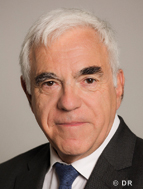
Gérard Berry, member of the French Académie des sciences and Gold Medal of CNRS in 2014, studied at Ecole Polytechnique and Corps des Mines in Paris. He was researcher at Ecole des Mines and Inria from 1970 to 2001, Chief Scientist of the Esterel Technologies company from 2001 to 2009, Director of Research at Inria from 2009 to 2012, before being appointed as Full Professor at Collège de France in 2012 on the Algorithms, Programs and Machine Chair; he had previously held there two yearly chairs in 2007-2008 and 2009-2010. He officially retired in 2001. His main scientific contributions concern the formal development of programming languages in relation with mathematical logic, parallel and real-time programming, high-level design of computer circuits and systems, and formal verification of programs and circuits. He is the creator of the Esterel synchronous reactive language. Through his courses, books and conferences, he is also active in the dissemination to a general audience of the new algorithmic way of thinking and acting.
Personal page : https://www-sop.inria.fr/members/Gerard.Berry/
Details: October 2020
Organised in collaboration with:



